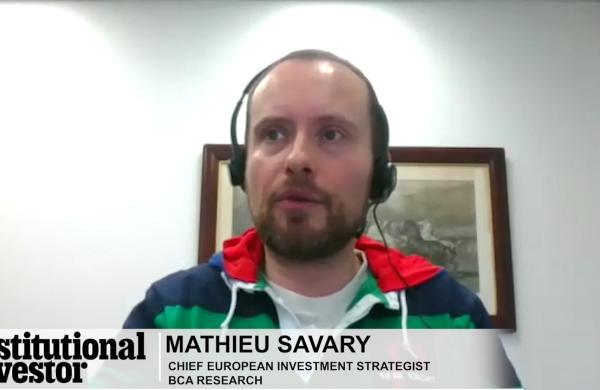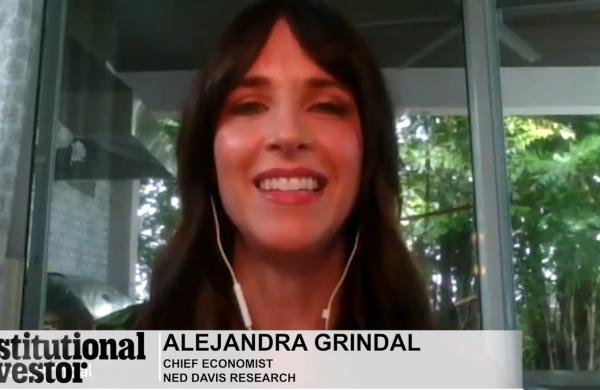Leland faust has always been comfortable in the athletic world. A swimmer and water polo player while at the University of California, Berkeley, Faust, a trim 60-year-old, regularly competes in triathlons. As the founder and head of CSI Capital Management, a San Francisco wealth management firm, he is well served by his sportsman's instincts and competitive streak. CSI specializes in managing money for, and providing financial advice to, professional athletes, a tiny but lucrative market niche characterized by epic battles for clients, come-from-behind victories and stunning disappointments.
Sometimes the skirmishing spills into the courtroom. Four years ago Faust sued a rival firm, alleging that it had used free audits of National Basketball Association players' financial accounts to "denigrate" his firm and obtain confidential information in an effort to steal business. Faust and his opponent settled the matter privately.
Why cater to jocks? The glamour of working with superstars certainly makes it an attractive specialty. But there is also a sound business logic. "The sports business is almost recession-proof," says Faust. "Salaries are going up almost every year."
Privately held CSI, a registered investment adviser, grew its assets through the bear market of 2000 to 2002 and now manages $1.1 billion, including $600 million on behalf of more than 200 pro athletes. They include NBA stars Tim Duncan of the San Antonio Spurs and Kevin Garnett of the Minnesota Timberwolves; National Football League standouts Ronde Barber of the Tampa Bay Buccaneers and his brother, Tiki, who recently retired from the New York Giants; and Major League Baseball players Derrek Lee of the Chicago Cubs and Kyle Farnsworth of the New York Yankees.
Wealth management firms of all stripes have been attracted to the business. Atlanta-based SunTrust Banks and Minneapolis-based U.S. Bank, for instance, have stand-alone divisions devoted to athletes. (U.S. Bank's sports unit is part of its private client group.)
Big brokerage houses are also getting in on the game. Although firms like Merrill Lynch & Co. and Citigroup's Smith Barney don't have formal divisions, they hire financial advisers, often former athletes themselves, who use their contacts to generate business. For a time, sports event management agencies like Cleveland-based IMG World, founded by superagent Mark McCormack, diversified into wealth management, but McLean, Virginiabased Octagon, which is owned by Interpublic Group, is one of the few that still has a financial arm.
There was no firm devoted to managing athletes' money when Faust graduated from Harvard University with a law degree and began his career in the early 1970s as a tax attorney. At the time, he figured that his work and his love of sports would remain separate. But after reading newspaper accounts of how professional athletes were prone to making poor financial decisions and often got scammed, he saw an opportunity to marry his professional training with his passion. "It just seemed to me that there was a real need for quality professional service in this area," he says.
Faust launched CSI in 1978 along with co-founder Donald Hill. Sports salaries were not then at the stratospheric levels of today, and many athletes simply turned to their agents to handle their finances. CSI has seen its business grow as athlete paychecks have soared.
Landing pro athlete clients is often the most difficult part of the business, according to those who ply the trade. Jon Hayes, who runs U.S. Bank's 12-person pro sports division, says he attends a seminar for financial advisers and money managers that is put on each year by the National Football League Players Association, which must vet and certify them before they can solicit players as clients.
"You know that there are a number of people who have been through the certification process and paid the fee thinking that this is going to lead to clients," says Hayes, reached by telephone from Major League Baseball spring training camp in Florida, where he meets with clients. "A couple of years later, they're out, and a new crop of guys are in."
Successfully converting athletes into clients generally requires a personal connection, which often comes in the form of a referral from a teammate, agent or coach. Tom Drees, first vice president of investments at Merrill Lynch in Bloomington, Minnesota, didn't have to scramble to meet prospects. Before joining Merrill, he was a pitcher, toiled in the minor leagues for nearly a decade and spent the 1991 season playing for the Chicago White Sox. "My teammates would always get on me because when the USA Today would come around, I would be reading the Money section, and they didn't know what it was," he says.
Drees began working for Merrill in the off-season and helped some of the younger ball players open checking accounts. When he left the game for good, some former teammates -- including a few who went on to careers lasting a decade or more -- retained him as a financial adviser. "That fed on itself, and those guys were great referral guys, and the business kept growing," says Drees, who now counsels 20 retired and 40 active baseball players.
Horizon Wealth Management, an independent wealth manager in Baton Rouge, Louisiana, that is affiliated with Multi-Financial Securities Corp., part of ING Group, has also managed to carve out a niche in professional baseball. The connection was forged when Major League veteran Jeff Reboulet, a onetime client, joined the company as an adviser in 2003. Having played for five teams over a dozen years, he knew a lot of players and helped build the business.
"If you're a journeyman infielder, which he was, that's not your favorite job in baseball," says Pete Bush, a founding partner of Horizon. "But if you have played on a bunch of different teams with a bunch of different players, you've built a lot of relationships."
Landing pro athlete clients may require aggressive networking skills, but managing their money is a conservative enterprise. Frank Zecca, who helps oversee Octagon's wealth management practice, views his role as preserving capital, not creating it. "The average athletic career is four years, so we invest as if they are 50 years old and about to retire," he says. "What we say in our group, which the agents don't really like, is, 'This is your last contract and you're never going to sign another one. Let's plan everything based on this contract.'"
For Zecca, that means steering clients toward a fairly straightforward asset allocation that ranges from 40 to 60 percent in stocks with the remainder in bonds. The goal, he says, is to build a portfolio that can generate enough income for the athlete to live on once his or her playing days are over.
Horizon's Bush pursues a slightly different strategy. For a typical baseball player who has accumulated liquid assets of $1.5 million and played in the Major Leagues for at least three years (and thus qualifies for salary arbitration), he recommends allocating 10 to 20 percent to cash, 45 to 55 percent to active equity strategies, 15 to 20 percent to fixed income and 10 to 20 percent to alternative investments such as real estate, oil and gas leases and commodities. The relatively high cash allocation enables active players to fund off-season spending, charitable causes and agent fees, for example. Bush also encourages players to set aside liquid assets for what he calls a "career transition account" and a "supplemental income account" to ease their exit from the game.
Because pro athletes typically come into money suddenly, education and patience are key parts of the wealth manager's job. CSI's Faust says no question is too basic, and his clients appreciate the forbearance. "Leland will be as thorough as you want to be," says former Yankee Paul O'Neill, who has been a CSI client since the late 1980s. "I understand more than I did when I started."
This education effort includes teaching athletes to control their spending. There are often tremendous pressures from family members and peers to paint the town, whether or not the athlete can afford to do so. Many wealth managers screen their clients' business ideas and requests for cash. Others aren't shy about dropping athlete clients with reckless habits.
Marvin Mcintyre, a Smith Barney financial adviser based in Washington, D.C., uses a straightforward pep talk with his roughly 50 athlete clients. "If you ever run out of money, there are two disasters," he tells them. "One is that you've run out of money, and the other is that you've ruined my perfect record. I won't jeopardize that."
In this market niche, success requires flexibility. Some athletes want their money managers to take care of everything -- including paying bills and filing their tax returns -- and couldn't care less about the difference between a corporate bond and Treasury bill. Others don't attach too much importance to one-on-one meetings. At spring training for Major League Baseball this year, for instance, U.S. Bank's Hayes had arranged a meeting with a client who plays for the New York Mets, but he didn't know where the athlete lived. Hayes assumed his client was staying in the same apartment as the year before but couldn't recall the location and ended up driving around looking for the building while sending frantic text messages in Spanish to the ballplayer. Finally, he spotted his client's car and knocked on various doors until the player answered, his hair sticking up straight from taking an afternoon nap.
For Hayes, it was just another day at the office. "These guys just live in a different environment," he says. "Once you understand it and embrace it, you'll do well."





